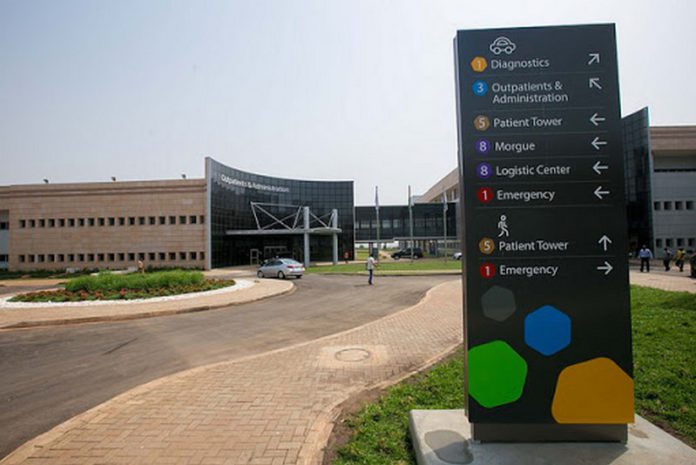Pregnancy and Covid-19 has been a topic of discussion during this pandemic for mothers-to-be and couples. Concerns have been raised about the potential danger a mother who tests positive for Covid-19 may affect her unborn baby.
It still remains unknown globally, what impact Covid-19 has on a pregnancy due to the fact that substantial research has not yet been done to find out.
Nonetheless, hospitals around the world have prepared for babies to come into this world. In Ghana, one hospital, the University of Ghana Medical Centre, has been designated a treatment centre for patients who test positive for Covid-19 and since some women are pregnant during this pandemic, they have been expecting.
A midwife who has successfully helped a multidisciplinary team to deliver two babies from mothers who tested positive at UGMC said to host of JoyFM’s Nortey Dua, on Sunday that in anticipation of receiving patients, including pregnant women, an isolation labour ward and an isolation theatre were set up.

Ines Agbenu shared with the show how exactly the two babies were delivered and gives insight as to how an isolation ward and isolation theatre operate.
“Our very first delivery ended up in the cesarean section and everything went well even though it is the same cesarean section we perform everyday.
Being in full Personal Protective Equipment to perform this cesarean section wasn’t a pleasant experience but as we always say, for God and country. So we went ahead as if we were going into a battlefield and we came out successful.
The second case was a normal delivery and as usual you need to monitor every woman in labour very closely because one minute everything is fine and in the next minute something can go wrong. So even though we try to follow the protocols: reducing contact hours with positive cases, we still made sure we kept an eye on this woman.”
“Some of the things we put in place is making sure that our nurses station is close to the patient area and we also had the opportunity to use the cardiotocography machine (CTG machine) which is used to monitor the woman’s progress continuously.
We also put in place a mobile phone access to the woman so that she can easily call us. Even though we could hear her from where she was. She can dial the nurses station’s number and talk to us. We also do assessment at very crucial intervals so that we are on top of our game. Thankfully, we had a normal delivery with mother and baby coming out in good condition.”
The impact of what social distancing, wearing of PPEs by medical staff surely enhances the isolation aspect of the delivering experience; especially for the mother-to-be. There is no doubt that her psychology would be affected. To curb that UGMC has additionally introduced systems that will help women the anxiety of delivering a baby during the pandemic.
Midwife Agbenu illustrated that it is already not an easy experience for most pregnant women to go through their usual antenatal care, see their midwife’s face, reduce nerves on a regular day without the pandemic. Since the outbreak, anxiety among pregnant women has heightened.
“In this case, your midwife comes in all covered up, and you actually wish you could see your midwife smile. We do smile behind our masks but you can’t see it. Thankfully what we do is, in both of the cases that we have delivered so far, they were already on admission at our isolation centre. So we started preparing them psychologically towards the delivery process.
We have a resident specialist clinical psychologist on board so we already prepared their minds towards what the labour process will be like the fact that we would have to come in fully covered but we will still give them the best of care. Even though it is not easy, they have adjusted overtime.”

